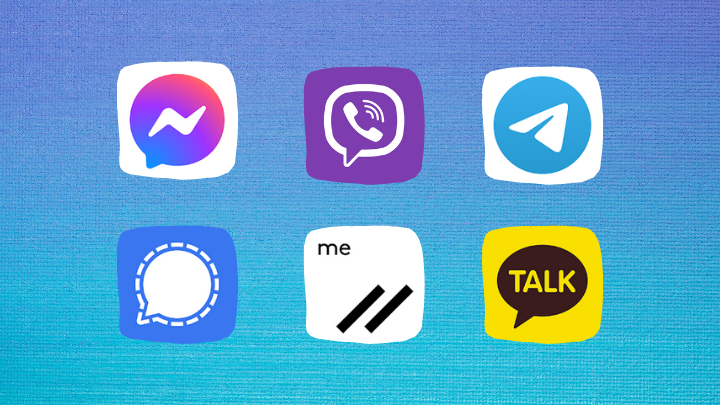Digital communication has never been more central to our lives. Whether we’re sending personal messages, discussing business details, sharing photos, or coordinating with friends across the world, our smartphones carry the most intimate parts of our daily routine. But as digital communication has grown, so has concern around privacy. Data breaches, surveillance, cyberattacks, and corporate tracking have made users far more aware of how vulnerable their information can be. In response, secret messaging apps have quickly risen in popularity, becoming one of the most important tools for safeguarding privacy in 2025.
Far from being used only by cybersecurity professionals or journalists, these apps are now widespread among everyday users who want more control over their data. They are helping to redefine what digital privacy looks like and setting new expectations for how messaging platforms should operate. Let’s explore how these apps are creating a more secure communication landscape.
The New Era of Digital Awareness
Over the past decade, the general public has become significantly more aware of digital privacy issues. People no longer assume their online interactions are safe or private. Studies, news reports, and personal experiences have revealed how easy it is for companies, governments, hackers, and even ordinary individuals to access private conversations.
Several factors have contributed to this shift:
1. Widespread Data Breaches
Large-scale hacks exposing millions of user records have made people question how companies store their information. When even major platforms can’t guarantee protection, users naturally turn to solutions that don’t store data at all.
2. The Rise of Surveillance Tools
From facial recognition to location tracking, modern technology can monitor activities more deeply than ever before. Secret messaging options provide an escape from this constant oversight.
3. Social Media Overreach
Apps that track behavior, analyze messages, or use conversation data to recommend ads have made people uncomfortable. Many now prefer apps that respect boundaries rather than invade them.
What Exactly Are Secret Messaging Apps?
These apps are designed with privacy at their core. Their primary mission is not to offer stickers, filters, or flashy UI features—but to protect user communication. Unlike traditional social platforms, they prioritize encryption, anonymity, and control over message visibility.
Common features include:
- End-to-end encryption, ensuring no one except sender and receiver can read messages
- Self-destructing chats that disappear after a set time
- Screenshot block or alerts
- Hidden or locked chat folders
- Minimal data collection or no account requirement at all
- Encrypted cloud backups, if backups are offered at all
These features collectively make it difficult for outside parties to access a user’s private communication.
How Secret Messaging Apps Are Transforming Digital Privacy
1. They Reduce Digital Footprints
The more digital information we leave behind, the easier it is for someone to steal, analyze, or misuse it. Secret messaging tools help by eliminating unnecessary storage. Messages disappear after they’re read, metadata is minimized, and in some cases, the apps store nothing centrally at all.
This shift toward “erase-as-you-go” communication is redefining modern privacy norms.
2. They Empower Users With Control
Traditional messaging apps store messages indefinitely, making users dependent on companies to protect their data. Secret messaging platforms shift that control directly into the user’s hands.
You decide:
- How long messages stay visible
- Whether media can be saved
- Who can view your chat interface
- Whether chats require an extra passcode
This level of autonomy represents a major step forward in personal digital protection.
3. They Make Privacy the Default, Not an Option
Most mainstream apps offer privacy settings buried deep within their menus. In contrast, secret messaging apps are built so that privacy isn’t just a setting—it’s the foundation.
Instead of opting into security features, users automatically start from a private, encrypted environment. This has raised expectations for all messaging apps and influenced industry standards.
4. They Protect Communication Across Borders
Many people communicate across countries where digital privacy laws differ widely. Some regions allow government monitoring with little oversight. By using encrypted platforms, users can bypass these limitations and maintain consistent privacy standards regardless of where they are.
This is especially important in 2025 as global travel, remote work, and international collaboration continue to increase.
5. They Reduce Risks of Identity Theft
Identity thieves often rely on intercepted messages, stored passwords, or unencrypted files. Since these apps encrypt everything—including photos and documents—they drastically reduce the chances of sensitive data being stolen or misused.
For anyone who frequently shares financial details, personal information, or business documents, this added security is invaluable.
Privacy Tools Are Becoming More Advanced
Secret messaging platforms are not just relying on basic encryption. They are implementing next-generation security features that make privacy even harder to break.
AI Threat Detection
Some apps use artificial intelligence to identify suspicious login attempts, unauthorized access, or unusual activity patterns.
Biometric Locks
Face ID and fingerprint locks add another layer of security to sensitive chats.
Decentralized Networks
Instead of storing information on a single server—which can be hacked—some platforms distribute data across multiple nodes, making breaches nearly impossible.
Quantum-Resistant encryption
With future threats from quantum computing, developers are preparing systems that can resist even the most advanced decryption techniques.
All these advancements demonstrate how messaging apps are pushing the boundaries of digital safety.
Who Benefits Most From Secret Messaging Apps?
While everyone can benefit from private communication, certain groups rely on these tools more heavily:
- Professionals handling confidential files
- Students sharing personal details or academic documents
- Couples or families communicating privately
- Remote workers exchanging sensitive business information
- Online daters wanting discretion
- Travelers in regions with weak privacy laws
Simply put: anyone who values their personal information can gain from using secret messaging apps.
The Future of Digital Privacy
As technology continues to advance, the demand for privacy-first platforms will continue to grow. People are no longer content with apps that treat privacy as an afterthought. They want tools that protect them by default and empower them to manage their own digital footprint.
Secret messaging platforms are setting new standards that force even mainstream apps to rethink how they handle data. This shift represents a long-overdue transformation in how digital communication is managed and protected.
Conclusion
In 2025, privacy is not a luxury—it’s a necessity. With more threats looming online and more personal interactions occurring digitally, safeguarding communication is essential. Secret messaging apps are leading this transformation, offering users control, encryption, anonymity, and peace of mind.
As digital privacy becomes a global concern, these apps are not only changing how we communicate but also shaping a future where privacy is respected, protected, and prioritized.



